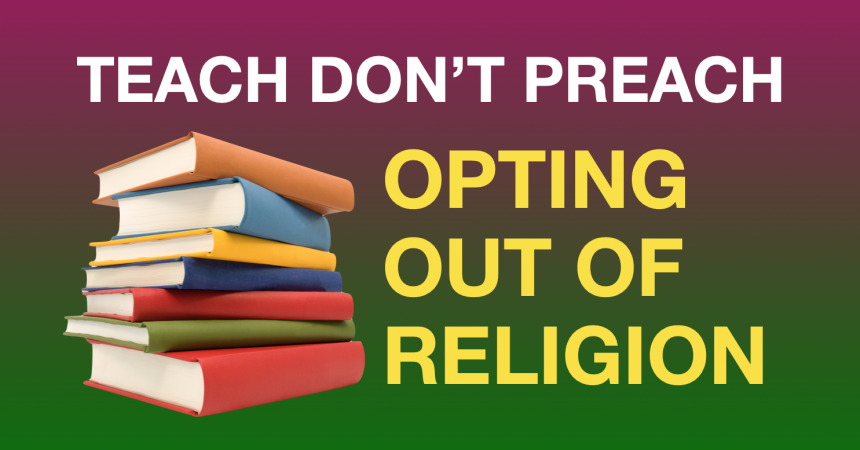
The Right to Opt out of Religion
The right to opt out of religion under the Irish Constitution is not confined to opting out of faith formation or any belief specific teaching.
The Constitution does not use the words faith formation in relation to the rights of parents to opt out their children (Article 44.2.4). The Education Act 1998 does not refer to faith formation in relation to parents opting out their children (Section 30-2(e)).
All subjects under the Education Act 1998 are referred to as instruction and this means that you can opt your child out of any instruction that is against your conscience, it is your Constitutional Right to do so.
This analysis is reflected in the Irish Human Rights and Equality Commission Report in 2011 (Religion and Education; A Human Rights perspective, page 73 para 228). They stated that:-
“This analysis creates a distinction between “religious and moral formation” which is a broad and all encompassing concept, on the one hand, and “instruction” on the other which is a much narrower formulation. It will be recalled that it is “instruction” in a subject that forms the basis of exemptions under the Education Act, and appears to be limited to formal classes in any subject, including religion. This statement could be interpreted to endorse a form of integrated curriculum, however it arguably does not actually go that far, as the decision was made in the context of second-level education, whereas the integrated curriculum applies to primary schools.”
This analysis is also reflected by Dr Conor O’Mahony in a detailed article on the right to opt out in relation to the incident in Castletroy Community College in 2015. An ETB school had refused to let a student opt out of the NCCA Religious Education course, an exam subject at Junior and Leaving Certificate level. Dr O’Mahony stated that:-
“Castletroy College initially sought to resist the request to opt-out on the basis that the subject being provided was multi-denominational rather than doctrinal instruction. Nonetheless, the view taken by the Supreme Court in the passage quoted above suggests that this distinction is irrelevant. The right to opt-out applies to the formal timetabled period of “religious instruction”, and would seem to capture whatever form that instruction might take. Thus, while the distinction between “religious instruction” and the overall school ethos or “religious education” is often pointed to as undermining the right to opt-out in a primary school context, it might ironically serve to strengthen it in a secondary school setting.”
The right to opt out refers to any formal ‘instruction’ class and is not defined to what people or groups define as faith formation or belief specific teaching. That definition is meaningless from a legal perspective.
Claiming that this Constitutional right only refers to faith formation or belief specific teaching and using that as an argument to deny parents and students their right to opt out undermines the Constitutional and Human Rights of parents and their children.
Not having clear policy available to parents on how the opt out is managed is coercion. Not offering another subject or providing supervision subjects parents to a heavy burden with a risk of undue exposure of their private life and the potential for conflict is likely to deter them from making such requests (Guide on Article 2 of Protocol No. 1 to the European Convention on Human Rights.)
You can find Dr Conor O’Mahony’s full Article here





0 Comments
No comments!
There are no comments yet, but you can be first to comment this article.